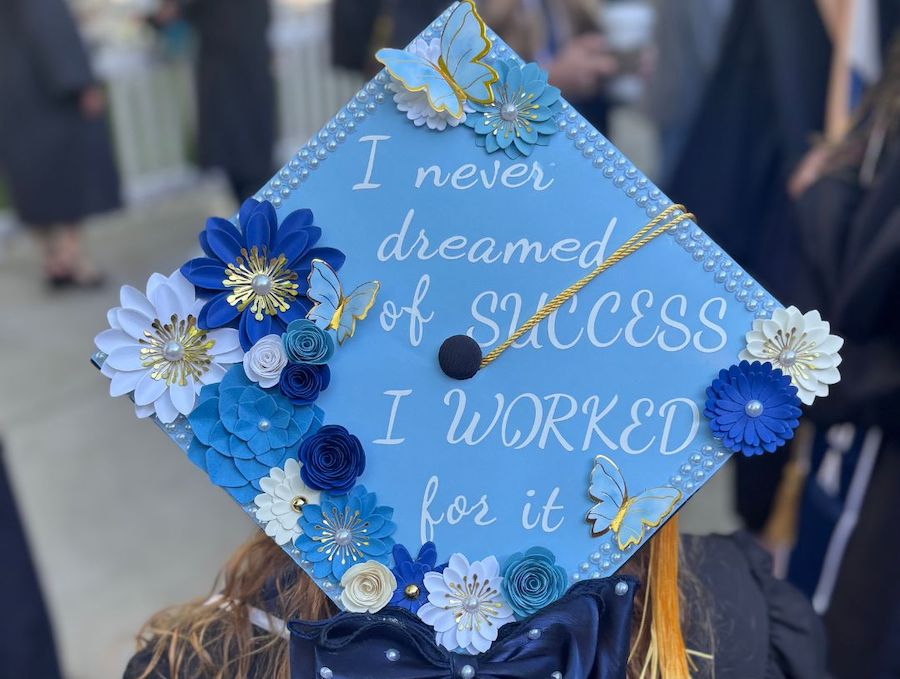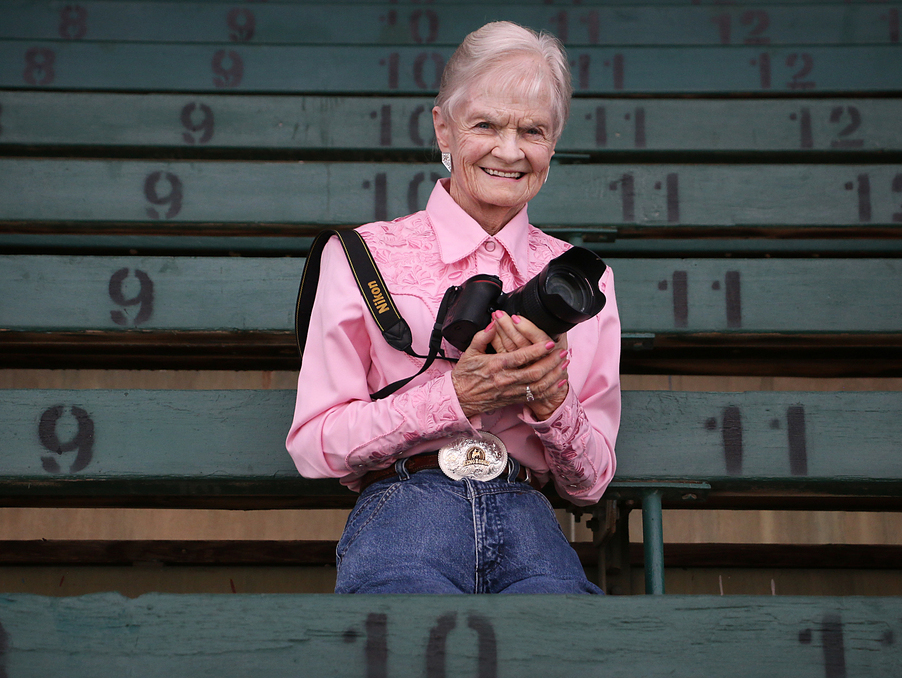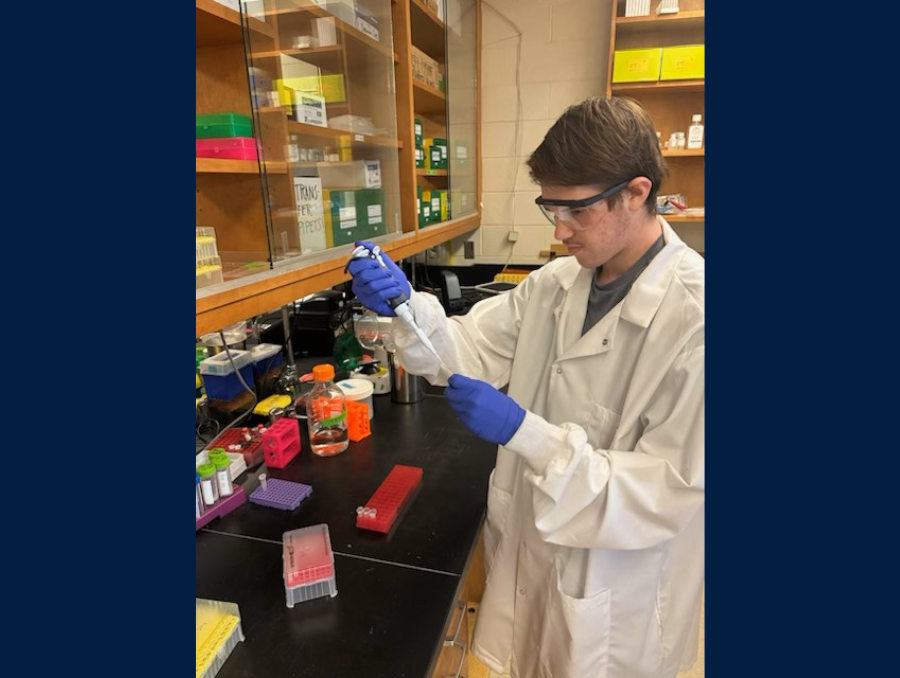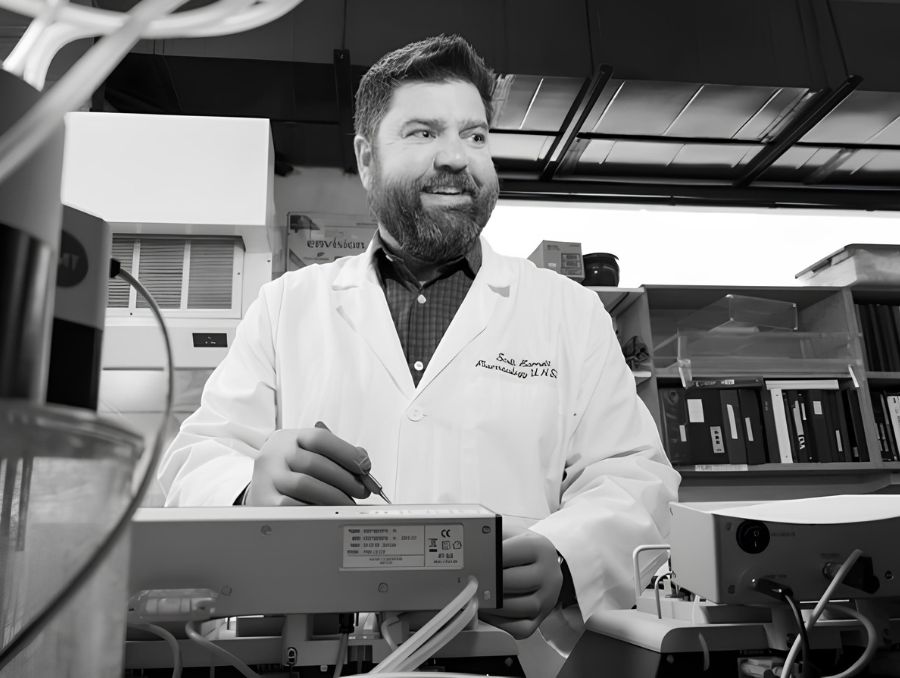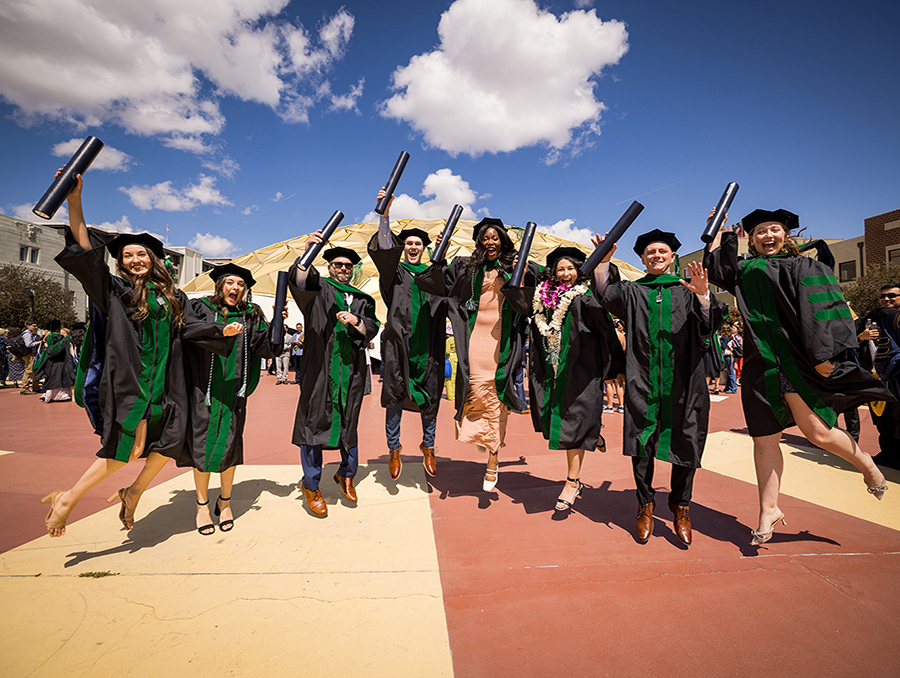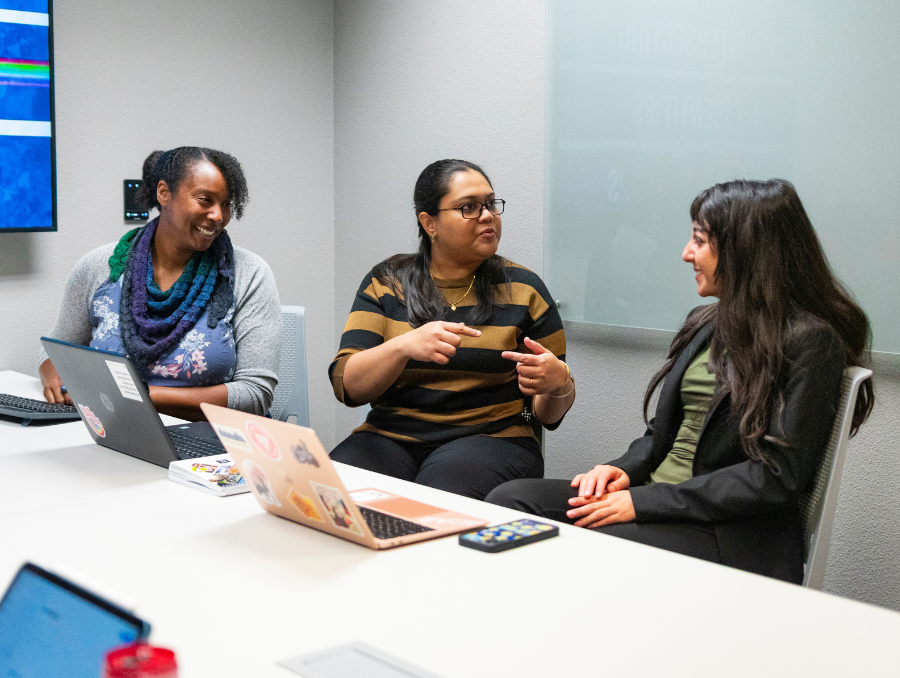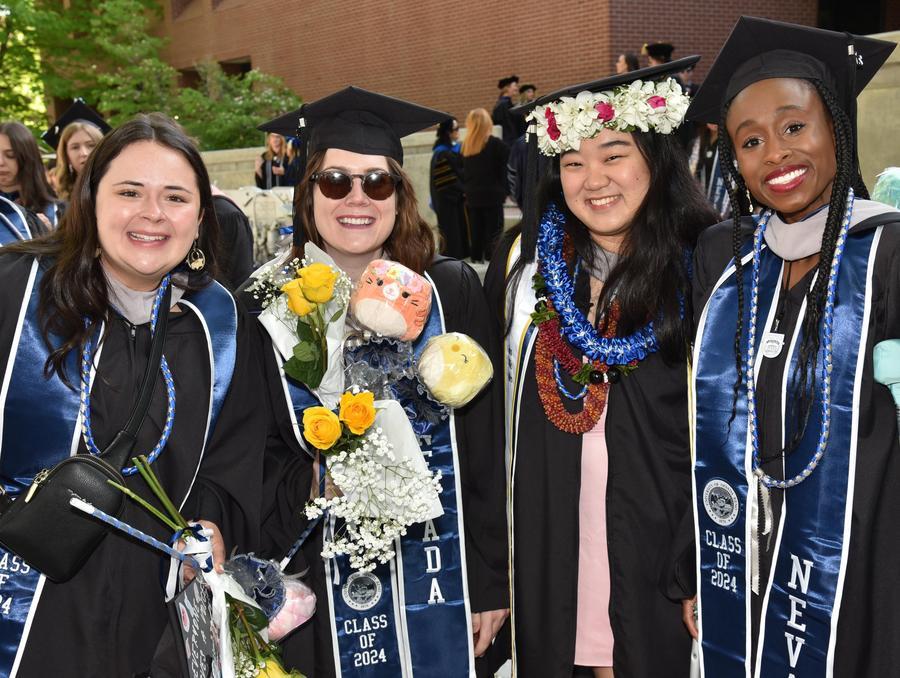Sergiu Dascalu is apologetic. He's been asked a question about teaching. His answer, he feels, has carried on longer than it should.
Of course, that's not the case for the visitor to his office in the Scrugham Engineering Building.
Dascalu talking about teaching is very similar to Dascalu doing teaching - that is, there is a strong, passionate undercurrent to his words and actions. There is nothing wasted, no excess verbiage, no imprecise examples, no meandering or convoluted explanations.
Everything he says is right on the money. It is time well-spent to listen to Sergiu Dascalu talk about a profession he truly loves.
"I'm sorry," says Dascalu with a smile, shrugging his shoulders with a hint of doubt. "Am I talking too much about my teaching?"
Not really.
Not when you are, like Dascalu, the winner of the 2011 F. Donald Tibbitts Distinguished Teaching Award - given each year to the top teacher on the University of Nevada, Reno campus.
Dascalu, an associate professor of computer science and engineering at the University for nine years, has earned a reputation as a professor that grabs his students' attention not through theatrics but through an elegant pedagogical simplicity that makes even the most complex problem seem rather elementary once he has explained it.
"I strive in my teaching to make things simple," says the native of Romania, whose rich baritone voice certainly doesn't hurt when he's in front of a classroom. "Sometimes you have a hard time because the subject matter is very complicated. The key for any good teacher is to try to make these very complicated things look very simple.
"I always try to give explanations in simple, very clear to understand terms."
Yaakov Varol, chairperson of the Department of Computer Science and Engineering in the College of Engineering, notes that there is more to Dascalu's teaching than easy-to-understand explanation. Varol says his colleague is an extremely hard-working individual who enjoys student-teacher interaction.
"Sergiu's a very caring teacher," Varol says. "He really devotes a lot of time preparing for his classes, and also to make sure that he is prepared in the best sense of the word with the latest innovation, introducing the latest research. He has a very strong research portfolio and this also helps him in the classroom in passing along the latest knowledge to his students.
"He's a believer in spending a lot of time with his students, to having an open door policy and having office hours where his students are welcome. Students can knock at his door anytime.
"He's a very welcoming, a very caring instructor, and our students love this about him."
Manos Maragakis, dean of the College of Engineering, says he has known for probably "four or five years" that it was only a matter of time before Dascalu was tabbed as the campus' top teacher. Like Varol, Maragakis says he's impressed by the amount of time Dascalu spends teaching and helping his students.
"I've known Sergiu for quite a long time and I've seen him mentoring students for events like the Governor's Cup," Maragakis says. "He is so talented, and he works so hard on top of that talent. I knew four or five years ago that this day (when Dascalu would win the Tibbitts Award) was going to come for him.
"Some people are born with certain inclinations and are born to be good teachers. Sergiu certainly has the talent, but the way he approaches the students, the way he selects the material he teaches and how he teaches it in the classroom and he looks at learning, he's quite unique.
"This award reflects exactly how special a teacher he truly is."
For his part, Dascalu says he looks at his classroom and his interaction with his students as "a gathering of friends."
Several years ago, he says, he realized that teaching wasn't an adversarial chore; it was actually a celebration of sorts, a time when motivated people can get together to share ideas and learn from each other.
"I've always liked to explain things," he says. "I've always enjoyed explaining things to my friends. Of course, the key to good teaching is you have to like it. That's key. You have to like being with young, or young-at-heart people who are willing to learn. I think it's always important to remember that when you are in front of the classroom, that the audience is with you. A class is a group of friends gathered to learn things, to study things, to communicate and collaborate together."
Years ago, the former Golden State Warriors coach Don Nelson once explained why his teams were always so successful. Nelson, an astute observer of the human condition, said it was because he treated each member of the team differently, with an understanding that there was a proper time to push and an equally important time to back off and offer praise.
A Dascalu classroom seems to embody the same sort of learning ethic.
"I like to have a relaxed atmosphere in the classroom," he says. "I'm very serious, but it's important even when you are serious to keep things relaxed. I wouldn't say there is a lot of joking. That isn't my style. You have to be focused, and you have to have some intensity in learning, but you also need to know when to back off."
Not surprisingly, one of Dascalu's sporting heroes is Nicolae Dobrin, who in the 1960s and 1970s was considered Romania's greatest soccer player. The seemingly effortless Dobrin was an exquisite presence on the soccer field, known for his selflessness, his deft passing and his sportsmanship.
Dascalu says he is by nature a somewhat shy person, and he often thinks of a comment Dobrin once made about handling nerves before performing before an audience.
"Towards the end of Dobrin's career, he was asked, 'Do you have the nerves, the emotions, butterflies?'" Dascalu says. "Dobrin said, "Yes, of course. Always. It's a good thing to have nerves. Because it motivates you and keeps you sharp.'
"I've always loved that example. I've embraced that way of thinking, and I'm always telling my own students, 'It's OK to have butterflies. It really is.'"
The route to the Nevada campus for Dascalu has been a circuitous one. He was already a young professor in Romania when communism faltered throughout Europe with the fall of the Berlin Wall in 1989. He moved to Canada with his wife, Alexandra, and daughter, Diana, to work on his Ph.D. at Dalhousie University in Halifax, Nova Scotia. Upon completion of his Ph.D. and with a background in automation and computer engineering, he applied for jobs in both Canada and the United States.
He had an interview at the University of Nevada, Reno, which proved fortunate. The interview was for a day and a half.
For a full day, he met like-minded, motivated faculty members.
"It's a very motivated, energetic, bright, resourceful group of people in the department," he says.
And then, for a half day, Dascalu was allowed to explore the Reno-Tahoe area on his own.
"I took a rent-a-car to Lake Tahoe and it was so ... wow ... it was so beautiful. I fell in love with Lake Tahoe," he says. "The opportunity to have such great colleagues, to work on such a very nice, well-maintained and cozy campus ... and to have beautiful Lake Tahoe.
"It was sort of easy to come here to work."
In addition to his work in the classroom, as Varol noted, Dascalu's research is both impressive and reason for another honor. Along with the Tibbitts Award, Dascalu is this year's recipient of the University's Outstanding Undergraduate Research Faculty Mentor Award.
For Dascalu, teaching and research are often one and the same.
"I think a good professor has both," he says. "If you are a tenure-track professor you have to have both. I'm not sure I can say I'm good at both. I'm seeking, I'm striving, to do both well."
His area of research focuses on software engineering and human-computer interactions.
To hear him explain his work is a fascinating exercise in applying real-world examples to the conceptual. Even if you have only a passing interest in what Dascalu studies, it's hard not to feel the excitement, and to understand why his students grow so enthused about the subject while in his presence.
"Software runs our civilization," he says, citing his respect for the words and career of Bjarne Stroustrup, the creator of the C++ programming language who once said that "our civilization runs on software."
Dascalu continues, "The more testing you do with software engineering, the more efficient it becomes. You see it every day with the products that our civilization uses: smart appliances, big screens, small screens, mobile devices. Everything you do in research translates to these real-life applications.
"Computer science is a relatively new engineering that is directly related to daily products and fantastic developments and rapid advancements. To me, computer science is a beautiful combination of mathematics and the arts. That's why I'm so happy with my job. It makes me relaxed and happy to think of my job in this way, and it makes me want to pass this happiness about my field to my students.
"Hardware, software and chips all require mathematics. And engineering is more like method - systematic development and design. But if you think of a computer, you think of arts. You think of interfaces and interactions. You think of wonderful graphics, websites and new creative sources. There's also an element of psychology - what is motivating the user? It's an amazing thing to study, with so many different elements that all play a part in it."
Like one of Nicolae Dobrin's laser-like passes from midfield, which always seemed to find a teammate in perfect stride, Dascalu says he has always had strong appreciation for classrooms that are run efficiently, with a clear purpose in mind.
In college, he says the best professors were the ones "where you couldn't wait to go to their classroom. You got to their classroom and you waited with such great anticipation - because they were so organized, so clean ... their lesson plans and classes were so well-designed. That's one of my sources of inspiration. And then you want to pass a little bit of this inspiration, this experience, on to your students."
Another source of inspiration for Dascalu is his family. Both of his parents, Vasile, age 83, and Niculina, or "Nelly," age 75, are well-educated people who passed a passion for learning on to their children. His father is a retired forestry engineer while his mother is a retired teacher, school administrator and principal.
From his mother, in particular, Dascalu says he learned the value of helping others.
"My mother worked into her 70s and she was a very dedicated teacher," he says. "She has a very good soul and likes people and has always wanted to help. Even at her age today, she still wants to help people. You know those kinds of people when you meet them - they are good people, and there are many more of them in the world than what you might think. The vast majority of people, in fact, are good, and my mother has always tried to teach others that.
"Because my mother was good at heart, that transferred to her students and to the people she met. I really believe such goodness transfers into your teaching, because then you like your students. You don't rush to judge and punish. You always want the good ... the very best your students are capable of giving."
From his wife, Dascalu says he has learned the values of dedication and sacrifice. While working on his Ph.D. in Canada, it was Alexandra who worked to support the family while Dascalu studied.
"My wife has known all the good times, the bad times, the struggles," he says. "I owe her a lot. My Ph.D. studies were tough. I started them as a mature person, and my daughter was nine or ten years old. I had to take care of the family ... but my wife actually took care of the family. I had some back problems also, during this time and for a year I was on the floor. But my wife kept going to provide for the family.
"I'm very grateful to her to what she has always done for us."
Now that he's won the Tibbitts, an experience Dascalu terms "humbling and a very, very pleasant surprise," he's already planning for the coming school year.
His plan?
More of the same elegant simplicity that has helped him reach the pinnacle of teaching at the University.
"Get on with things, don't waste time, get to the core of, the meaning of things, share what's important to your students and don't waste their time," he says of his teaching philosophy. "When you are in class, explain things and explain things well. Do it right. Entertain if you want, but 'exciting' is the better word."
The man who can't stop himself from talking with such heartfelt respect for teaching can't help himself.
Time, though, is never short when you hear such talk. Especially when it is from an uncommonly passionate teacher like Sergiu Dascalu.
"Exciting," he says again. "Make it exciting. Make it interesting. Make it like a memorable movie that your students won't soon forget."

